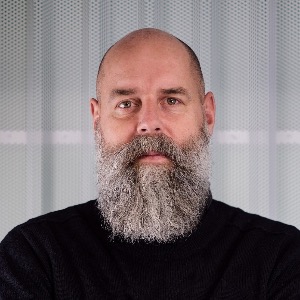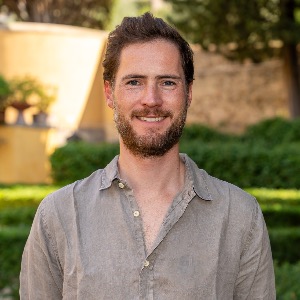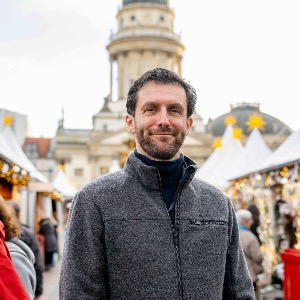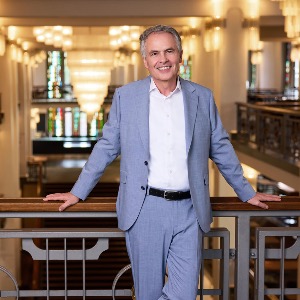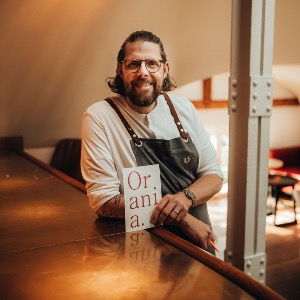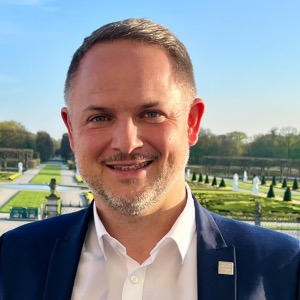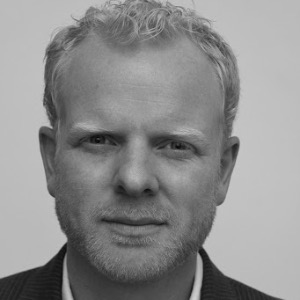
Mathias Irminger Sonne, 47, worked from 2009 to 2023 as a correspondent for a Danish daily newspaper in Germany. Since 2023, he has been the Head of Culture and Communication at the Royal Danish Embassy in Berlin. He lives here with his German partner and their two daughters, Juli and Clara.
Inside Denmark’s Voice in Berlin: A Conversation with Mathias Irminger Sonne
What led you from journalism into diplomatic communication, and what keeps you energized in this field?
I worked for many years in Germany as a freelance journalist and later as a correspondent. During that time, I realized that as a correspondent, you’re often a „lonely rider“ – little contact with the editorial office, always a bit of a satellite. Over the years, I also felt the impatience of journalism: you constantly have to deliver something new, conjure up the end of the world almost daily.
Then came the offer to switch to diplomacy. That fascinated me: insight into the engine room of diplomacy and democracy, a cooler and more nuanced view of world events.
Which themes and projects are shaping your work right now, and how has Denmark’s Council Presidency changed your daily priorities?
My work-life balance could be better, of course. The Council Presidency takes up an enormous amount of space. In our department, we sit between political communication, public diplomacy, and culture. With the Council Presidency, we want to tell more stories about Denmark for example, about our willingness to reform and our joy in experimentation.
We also organize cultural projects, such as exhibitions and events about Danish communities. This ranges from political festivals and adult education centers to youth institutions that strengthen social cohesion – structures that we find very valuable for democracy. In terms of content, we communicate about digitalization, healthcare reforms, and above all, the energy transition, one of the main priorities of the Danish Council Presidency.
How do you understand Public Diplomacy in practice, and where do you see its boundaries compared with traditional PR?
Public Diplomacy is a more vague term than PR but that’s what makes it interesting. PR for an entire country is difficult because a country is diverse. In Germany, Denmark already has a good image anyway: holiday memories, the Nordic Noir of crime novels, design, and hygge. But we don’t just want to show the positive; we also want to describe difficult political processes and European challenges. Classic high-gloss advertising campaigns for countries don’t work anymore. People want an honest picture.

